Research
Our clinicians at Arrow Health are at the forefront of addiction and treatment research in Australia.
Current Projects
Arrow Health is helping Monash University to conduct a randomised controlled trial testing the effect of a novel cognitive bias modification smartphone application on alcohol use and craving among clients exiting rehabilitation treatment for alcohol use disorder.
Published Research
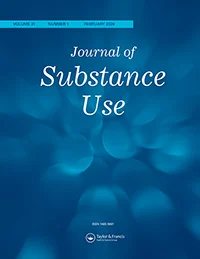
Mutual-aid group involvement lowers relapse risk more in early recovery than in later stages
Journal of Substance Use – Roxburgh, A. D., Best, D., Martinelli, T., Manning, V., & Vanderplasschen, W. (2026)
The study provides evidence that greater involvement in addiction recovery groups is associated with better outcomes for those in earlier stages of recovery and highlights the need for greater availability of and referral to peer support groups, particularly for those in early recovery.
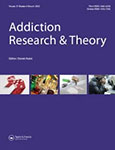
Composition of social networks to build recovery capital differ across early and stable stages of recovery,
Addiction Research & Theory – Roxburgh, A. D., Best, D. , Lubman D. I., & Manning, V. (2023)
The study provides evidence that the elements (e.g. diversity and number of supports) of a social network that facilitate recovery capital change as individuals progress through recovery stages, and highlights the importance of peer support in early recovery.
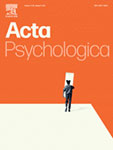 Negative urgency is related to impaired response inhibition during threatening conditions
Negative urgency is related to impaired response inhibition during threatening conditions
Acta Psychologica, 228, [103648] – Roxburgh, A. D., White, D. J., & Cornwell, B. R. (2022).
The findings suggest the relationship between negative urgency and inhibition is facilitated by threatening conditions and that high sensation seekers experience threatening stimuli differently.
 Anxious arousal alters prefrontal cortical control of stopping.
Anxious arousal alters prefrontal cortical control of stopping.European Journal of Neuroscience. – Roxburgh, A. D., White, D. J., & Cornwell, B. R. (2020).
The findings support theoretical claims that beta oscillations function to maintain the current sensorimotor state, and that the lack of differential beta-band activity in prefrontal cortices underlies anxiety-related deficits in inhibitory control. We specifically argue that altered right IFG functioning might directly link impaired cognitive control to heightened stimulus-driven responding in anxiety states.
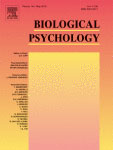 Threat-induced anxiety weakens inhibitory control
Threat-induced anxiety weakens inhibitory control
Biological Psychology, 144, 99-102. – Roxburgh, A. D., Hughes, M. E., & Cornwell, B. R. (2019).
This finding supports the claim of impaired inhibitory control in anxiety. Threat of unpredictable shocks reliably modulates anxious arousal. Anxious arousal negatively affects stopping efficiency on a stop-signal task. Slower stop signal reaction time implicates weakened inhibitory control in anxiety.
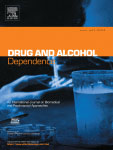 Proof-of-concept trial of Goal Management Training+ to improve executive functions and treatment outcomes in methamphetamine use disorder.
Proof-of-concept trial of Goal Management Training+ to improve executive functions and treatment outcomes in methamphetamine use disorder.Drug and Alcohol Dependence Volume 246
Deficits in executive function are common in methamphetamine use disorder (MUD), likely contributing to difficulties in sustained treatment success. Cognitive remediation interventions are designed to treat such deficits but have not been adapted to the needs of people with MUD. This study presents a proof-of-concept trial to evaluate a new cognitive remediation program for MUD, Goal Management Training+ (GMT+).
Media
 Private drug rehab providers in Victoria call for regulation to protect patients from ‘exploitation’ , ABC (2017)
Private drug rehab providers in Victoria call for regulation to protect patients from ‘exploitation’ , ABC (2017)
Private drug rehabilitation providers are growing increasingly frustrated at a lack of government action to regulate the trouble-plagued sector.
Victoria’s Health Complaints Commissioner has so far this year received 22 complaints about some of the clinics, including for “exploitative billing practices”.
“Any Tom, Dick or Harry” can set up a drug rehab clinic in Victoria, according to Toby Lawrence from Arrow Health. “I’ve heard a lot of horror stories, we’ve heard about clients being mixed up in a romantic sense with the people that are providing therapy,” Mr Lawrence said.
 Addiction care boosted , The Star Weekly (2025)
Addiction care boosted , The Star Weekly (2025)
Health Minister and Macedon MP Mary-Anne Thomas, representing Regional Development Minister Jaclyn Symes, visited the clinic to unveil Belam Belam, the new inpatient addiction rehabilitation facility.
“The expansion of this clinic will make a real difference for those in my community struggling with drug and alcohol addiction – allowing them to seek the care they need, closer to home,” Ms Thomas said.
The Allan Labor Government is supporting people experiencing drug and alcohol addiction with the expansion of Arrow Health’s rehabilitation clinic in Woodend.
Supported by a $600,000 investment, the $2.1 million expansion will allow Arrow Health to deliver more of its essential services to help people affected by addiction and their families.
“The expansion of this clinic will make a real difference for those in my community struggling with drug and alcohol addiction – allowing them to seek the care they need, closer to home.”
(Quote attributable to Minister for Health and Member for Macedon Mary-Anne Thomas)

